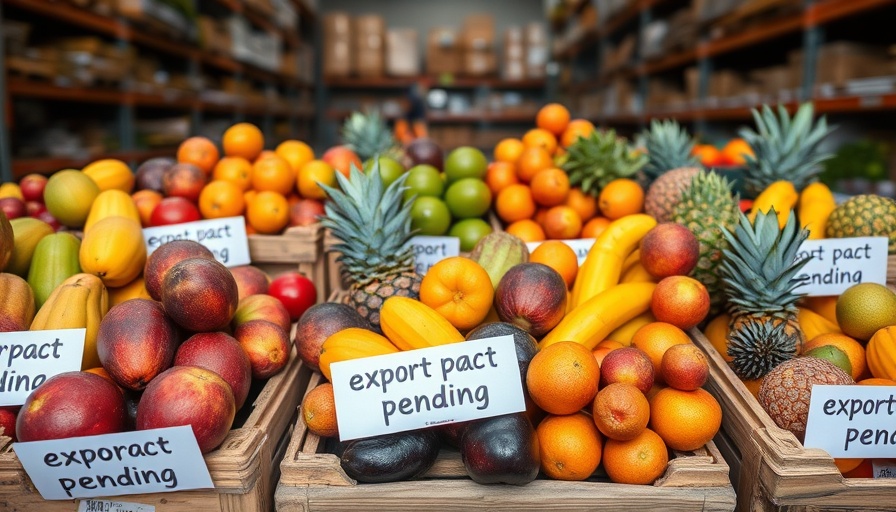
A New Era of Financial Integration for Africa
As African nations grapple with economic challenges and strive for autonomy, the launch of the African Currency Marketplace stands as a pivotal step towards financial integration. This initiative, spearheaded by the Pan-African Payment and Settlement System (PAPSS) and supported by 15 central banks, is set to revolutionize the trading landscape across the continent. With the objective of facilitating seamless direct currency exchanges, the marketplace aims to diminish reliance on the US dollar, promoting a unified capital market capable of enhancing liquidity and trade efficiency.
In Africa advances toward financial integration with new currency exchange marketplace, the discussion dives into financial innovations that could reshape the continent's economic landscape, exploring key insights that sparked deeper analysis on our end.
Why Direct Currency Exchange Is Crucial
In traditional foreign exchange markets, African businesses often face the frustration of converting local currencies into US dollars before engaging in cross-border transactions. This dependency complicates trade and restricts economic growth. For example, an Ethiopian airline operating in Nigeria must navigate the inefficient processes of currency conversion to receive payments. The introduction of the African Currency Marketplace will empower businesses to exchange currencies directly, fostering greater trade relationships and reducing issues tied to currency volatility.
Benefits of a Unified Capital Market
The establishment of a unified capital market encompassing all 54 African nations presents untold opportunities for businesses, allowing them access to a broader scope of borrowing and investing options. The potential to borrow in another African country's currency not only enhances trade relationships but also encourages innovation and growth across industries. Stan Z, CEO of Bloomfield Investment, emphasizes that moving towards a singular capital market could greatly enhance the investment landscape, creating a powerful financial ecosystem across the continent.
Challenges Ahead: Infrastructure and Digitalization
While the African Currency Marketplace heralds optimism, challenges remain concerning infrastructure, particularly in digital connectivity and energy supply. Stan Z highlighted the urgent need for significant investments in both areas to enable such financial systems to operate effectively. As African governments prioritize renewable energy and digital innovations, overcoming these challenges is key to the successful implementation of the marketplace.
The Role of Rating Agencies in Financial Development
The discourse surrounding private versus public rating agencies in Africa remains contentious. Stan Z argues for the enhancement of existing private African rating agencies rather than establishing new public entities. With a new capital market on the horizon, the establishment of creditworthiness and financial credibility through respected private agencies is vital. The successful growth of Africa's financial integration depends on having credible rating systems that encourage investment without the perceived biases of public agencies.
Innovative Solutions in Renewable Energy
In a related development, Zimbabwean innovator Maxwell has made strides in the renewable energy sector, harnessing radio waves from the sun to power vehicles. His invention challenges conventional energy systems by enabling vehicles to generate electricity, potentially reshaping Africa's energy landscape. As traditional energy systems become a limiting factor in economic growth, Maxwell's innovation offers a glimpse into a more sustainable future, aligning well with the continent’s goals for renewable energy development.
Implications for Trade and Economic Growth
The ongoing discussions surrounding the African Currency Marketplace and innovative solutions in energy illustrate the continent's commitment to fostering trade, economic growth, and technological advancements. By reducing dependence on the US dollar and unlocking potential with local currencies, Africa takes significant steps towards economic independence. As experts weigh in on the challenges and opportunities presented by these initiatives, it is clear that bold actions are necessary as Africa carves its path in a complex global economy.
Call to Action: Embrace the Change
As professionals and stakeholders in African economies, it is essential to embrace the changes brought about by these innovative financial initiatives. Engaging with the African Currency Marketplace not only provides immediate benefits for businesses but also contributes to the long-term stability of the entire African economy. Join the conversation and explore how you can be part of Africa's exciting financial future.
 Add Row
Add Row  Add
Add 




Write A Comment